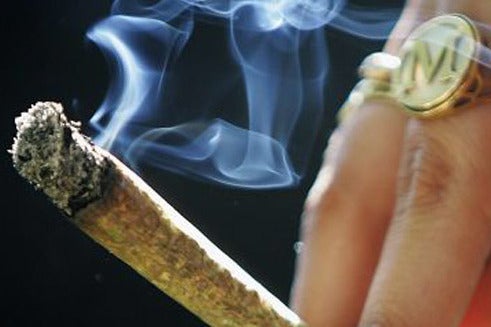Surge in skunk adds to pressure for reversal of cannabis downgrading

Your support helps us to tell the story
From reproductive rights to climate change to Big Tech, The Independent is on the ground when the story is developing. Whether it's investigating the financials of Elon Musk's pro-Trump PAC or producing our latest documentary, 'The A Word', which shines a light on the American women fighting for reproductive rights, we know how important it is to parse out the facts from the messaging.
At such a critical moment in US history, we need reporters on the ground. Your donation allows us to keep sending journalists to speak to both sides of the story.
The Independent is trusted by Americans across the entire political spectrum. And unlike many other quality news outlets, we choose not to lock Americans out of our reporting and analysis with paywalls. We believe quality journalism should be available to everyone, paid for by those who can afford it.
Your support makes all the difference.Three-quarters of the cannabis in circulation is the potent "skunk" variety blamed for causing mental illness, research for the Home Office has disclosed.
The soaring popularity of skunk, which is – on average – three times more powerful than cannabis resin and herbal cannabis, emerged as the Government considers whether to reverse the downgrading of the drug from a class B to class C substance. The increase, alongside mounting evidence of a link between regular cannabis use and psychosis, further raises the likelihood that Jacqui Smith, the Home Secretary, will back the reversal.
Skunk now accounts for 70 to 80 per cent of the cannabis taken in England and Wales, according to an analysis of drug samples seized in recent months. That compared with just 15 per cent in 2002. The drug was virtually unknown in Britain in the early 1990s.
Cannabis resin represents 20 per cent of the market, while herbal cannabis has almost disappeared. Les King, an adviser to the Home Office Scientific Development Branch, told a public hearing of the Advisory Council on the Misuse of Drugs that skunk contained 14 per cent THC, the ingredient that produces the "high", while herbal cannabis had a 5 per cent content. But he said: "It's the same as saying wine is twice as strong as beer. It is not only what you drink but how much.
"Regular statements are made that cannabis is ten, 20 times stronger than it used to be. It is misleading and it is wrong."
The Association of Chief Police Officers and magistrates told the committee, whose conclusions will be handed to Ms Smith in April, that they want the drug reclassified.
Join our commenting forum
Join thought-provoking conversations, follow other Independent readers and see their replies
Comments